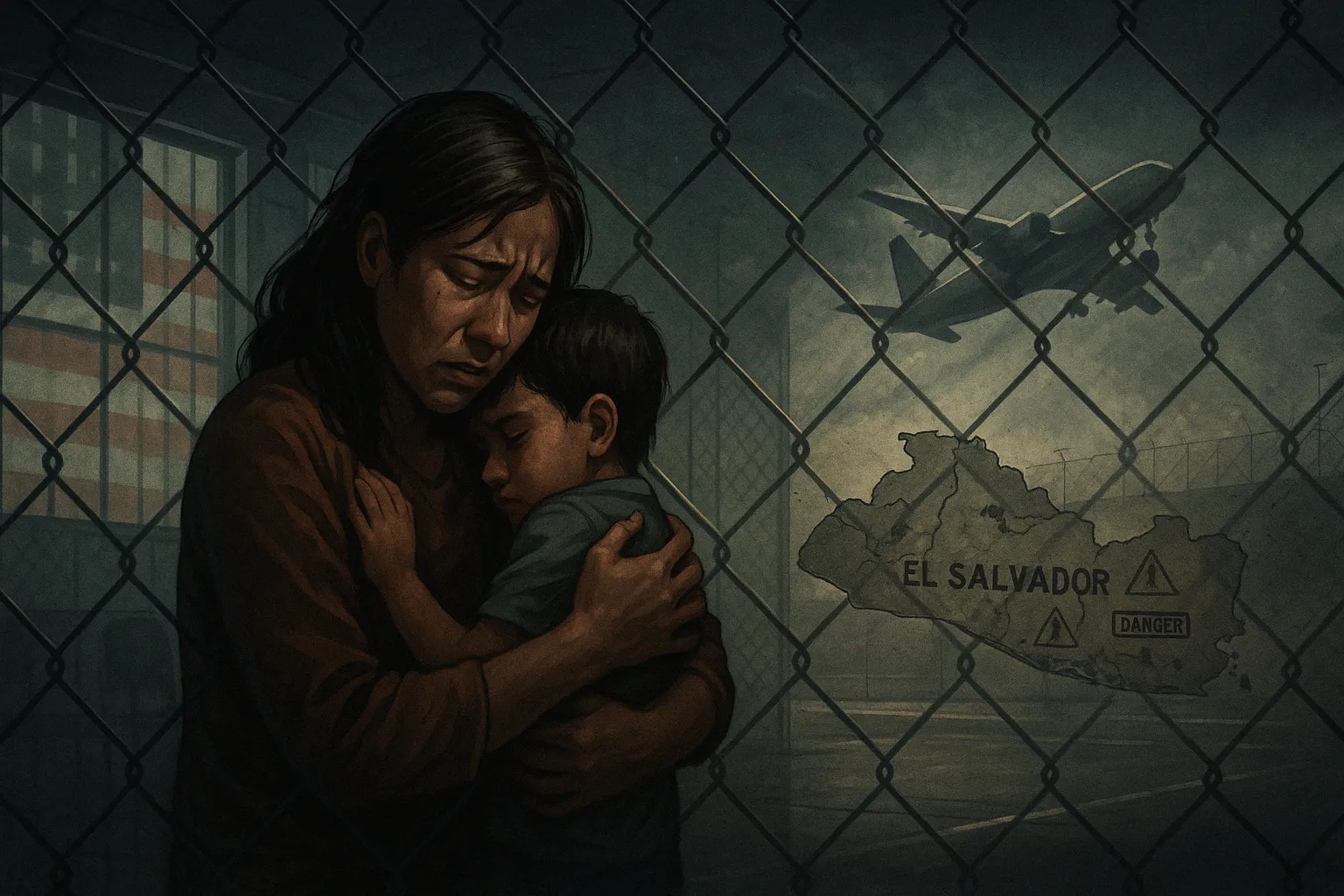US Detainees Urge Supreme Court to Stop El Salvador Deportations Amid Rising Safety Fears in 2025

Deportation Concerns: Why US Detainees Are Sounding The Alarm
People facing deportation from the United States are calling on the Supreme Court to help—pleading for a pause on being sent back to El Salvador this year. And you know what? That fear isn’t just anxiety speaking. For many, it’s the difference between safety and danger. The sense of urgency rings out from detention centers and advocacy groups: if you send us back, what are we going back to?
With reports of growing violence in El Salvador making headlines, the reality on the ground means more than just statistics—it’s personal stories, family fears, and the weight of uncertainty. Many folks left El Salvador to escape threats or gang activity, and now, as 2024 unfolds, the question is sharper than ever: Is returning safe?
Immigration Law: A Moving Target
Immigration law in the United States can be a bit of a moving target—new policies, shifting priorities, and court cases that seem to rewrite the rulebook every few months. At the center of it all is the fate of thousands facing deportation to troubled regions.
When the Supreme Court gets involved, it’s not just about paperwork or procedures. It’s real lives hanging in the balance. For many detainees from El Salvador, the plea is simple but profound: Keep us safe by keeping us here, at least for now.
Safety in El Salvador: What’s Happening on the Ground?
Let’s talk about El Salvador. Sure, you might have heard stories from relatives or the news—a country with volcanoes, bustling markets, and proud traditions. But alongside the vibrant culture, there’s an undercurrent of danger. Rising violence, political crackdowns, and instability are making headlines, not just local but global. It’s a lot to take in.
In 2024, families in El Salvador are wrestling with fears of gang violence and police sweeps. Human rights organizations like Amnesty International have raised concerns about safety for deportees. If someone left to survive and now faces forced return, the fear isn’t made up. For many, going back is a leap into uncertainty.
Voices From Detention: Real Stories, Real Stakes
You hear it in their voices. People in US detention centers call their families from pay phones, speaking in hushed tones: “I’m scared to go back.” It’s not melodrama but a reflection of what’s at stake. Some have kids in US schools, others care for elders. Many have built lives, however fragile, on hope.
- Family separation looms large. How do you explain to a child that dad or mom may not come home?
- Community ties splinter. Churches, neighbors, school friends—all left behind in a heartbeat.
And honestly, when you think about it, doesn’t every parent want just a little peace for their family?
Legal Moves: What’s the Supreme Court Really Deciding?
It’s easy to get lost in legal jargon— habeas corpus, stays of removal, precedents going back decades— but at its core, the detainees’ plea is about a pause. They want the nation’s highest court to tell the government: “Let’s wait. Let’s make sure deporting people to El Salvador right now won’t put their lives in trouble.”
Some legal experts argue that the US, under international agreements, has an obligation not to send people into harm’s way. Meanwhile, government attorneys often counter: not everyone faces specific threats. The back-and-forth is almost dizzying, especially when the stakes are this high.
What Could Happen Next?
The Court’s decision may set a precedent—for better or worse. If the Supreme Court sides with detainees, it might temporarily halt deportations to El Salvador, at least until conditions change or cases get another look. On the flip side, a denial could send hundreds, maybe thousands, back, leaving families here worried sick.
Here’s the thing: sometimes laws and judges seem distant or cold, but the human reality is anything but chilly. It’s warm, raw, messy—like life itself.
Advocates and Opponents: A War of Words and Compassion
This debate isn’t just happening in courtrooms. Listen to community advocates, and the message is clear: Protect people, don’t send them into danger. You’ll hear appeals to empathy, references to America’s long history as a place of refuge, and reminders that immigration has always shaped, and sometimes saved, lives here.
But there’s another voice, too. Some argue that immigration laws have to be enforced to keep order and fairness—for everyone’s sake. They question whether blanket halts make sense. It’s a real tug-of-war between compassion and policy, with no easy answers.
What’s At Stake for Families?
Let’s not beat around the bush—this is about families, safety, and futures. You’ve got parents facing heart-wrenching choices, kids trying to make sense of it all, and communities that just want a glimmer of hope.
- Will the Supreme Court offer a lifeline?
- Can daily life in El Salvador really change for the better anytime soon?
- How do we balance national rules with human need?
Maybe there’s no perfect solution, but in moments like these, freezing decisions—even for a while—can mean the world.
Looking Ahead: Uncertain Roads and Lingering Hope
For now, detainees, lawyers, and families wait—watching headlines, hoping for good news, clutching phones tightly as if waiting by a lifeline. It’s hard not to feel the tension, the way the future seems caught in limbo.
Nobody knows exactly what the Supreme Court will decide, or when. But as El Salvador faces turbulence in 2024, and as detainees’ voices grow louder, one thing is clear: these aren’t just legal files. These are lives, and the outcome will echo far beyond the courthouse.
Stay Tuned: This Isn’t Just Another Immigration Story
If you want to dig deeper or follow what happens next, groups like the ACLU and Human Rights Watch are tracking every twist and turn. And for real-time updates, check out the original reporting at Livemint.
History is written on days like these. And for El Salvador’s would-be deportees, every decision matters.







wam75n
I don’t think the title of your article matches the content lol. Just kidding, mainly because I had some doubts after reading the article.
Your point of view caught my eye and was very interesting. Thanks. I have a question for you.
After research a number of of the weblog posts in your website now, and I truly like your method of blogging. I bookmarked it to my bookmark website listing and will likely be checking back soon. Pls try my web site as properly and let me know what you think.
Can you be more specific about the content of your article? After reading it, I still have some doubts. Hope you can help me.